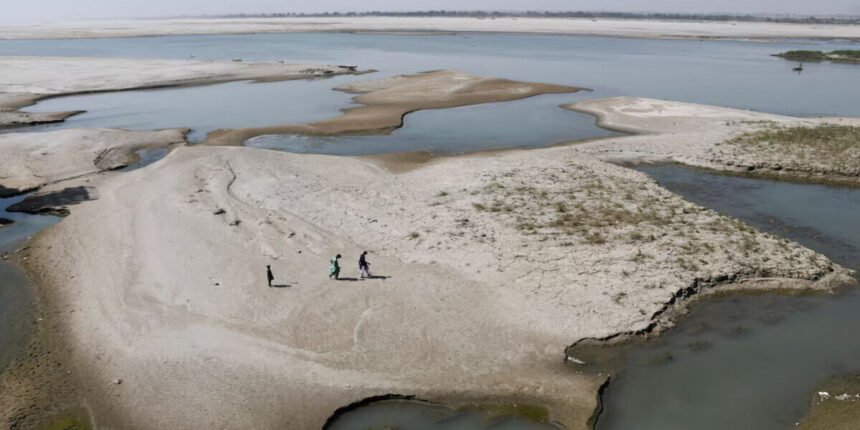India is reportedly considering significant plans to increase water extraction from the Indus River system, which supplies crucial irrigation water to Pakistani farms downstream. This move follows India’s suspension of its participation in the Indus Waters Treaty (IWT) of 1960, in response to a deadly April attack in Indian-administered Kashmir that New Delhi attributes to Pakistan.
Read More: Trump Asks Apple to Shift Manufacturing from India to America
Sources familiar with the matter reveal that India aims to nearly triple water diversion by expanding the 19th-century Ranbir Canal on the Chenab River from 40 to 150 cubic meters per second, significantly reducing water flow into Pakistan’s Punjab province. This expansion could take several years to complete but marks a notable shift in India’s approach to the treaty, which governs shared water resources between the two nuclear-armed neighbors.
The suspension of the treaty, which India terms “in abeyance,” followed the killing of 26 civilians in Kashmir on April 22. Pakistan denies involvement and maintains that any unilateral alteration to water flows would constitute an act of war, given that roughly 80% of Pakistani agriculture depends on the Indus system.
Read More: India Pushes for International Control of Pakistan’s Nuclear Arsenal
Despite a recent ceasefire agreement, India continues to expedite plans for new infrastructure projects on the Chenab, Jhelum, and Indus rivers, including hydropower dams and large water storage facilities, primarily in Indian-controlled Jammu and Kashmir. Indian officials assert these projects are essential for national security and resource development.
World Bank President Ajay Banga has emphasized that the IWT has no provision for suspension, and modifications require mutual consent. The treaty has long been praised as a rare successful water-sharing agreement that survived multiple conflicts between India and Pakistan.
Experts warn that India’s escalated actions risk further destabilizing regional relations and may encourage similar tactics by China against India amid increasing geopolitical tensions. Pakistan is reportedly preparing legal challenges in international courts, including the World Bank and the International Court of Justice, to contest India’s moves.
Pakistani Finance Minister Muhammad Aurangzeb urged that “water should not be weaponized” and called for the reinstatement of the treaty to prevent escalating conflict over this vital resource.


